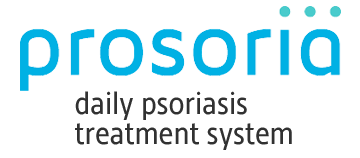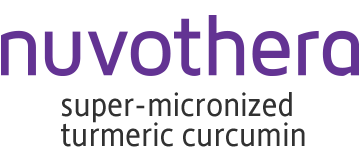
A microbiome is a colony of single-celled microorganisms, typically bacterium, virus, or fungus, that live in a particular environment. Understanding the microbiome of plants, animals, and the environment can lead to monumental scientific discoveries. The most influential community of microorganisms is in the gut. The gut microbiome plays a fundamental role in how the mind and body function. Friendly bacteria reinforce the gut barrier and keep us healthy and happy. The microbiome is the first line of defense against pathogens and invaders. When the microbiome is imbalanced, harmful bacteria spread and cause disease. Bacteria in the gut influence genes, behavior, metabolism, and physiology. A healthy microbiome is linked to heath improvement for various illnesses such as psoriasis, diabetes, autism, arthritis, obesity, schizophrenia, allergies, alzheimer's, depression, irritable bowel syndrome, chronic fatigue syndrome, parkinsons, and many more.

Our body is an ecosystem. The protective microbiome in the gut is a community of like-minded organisms. This diverse population has a common goal: to get the most nutrients out of food so we get the most out of life. Probiotics are live microorganisms, typically bacteria, that stimulate function of the digestive and immune system, produce essential hormones and vitamins, increase biosorption of important nutrients, balance blood sugar and cholesterol levels, improve immunity, regulate mood and sustain a healthy weight. Probiotics are found in fermented foods and drinks like kombucha, pickled cucumbers, sauerkraut, miso, natto, kimchi, tempeh, and apple cider vinegar. Beneficial bacteria thrive on fiber, which naturally detoxes the body and is crucial for physical, mental, and emotional health. Prebiotics are high-fiber foods that probiotics eat in order to survive and reproduce. Probiotics and prebiotics work together to prevent toxins from entering the gut barrier, increase energy, and reduce inflammation. Research concludes that most disease stems from inflammation in the gut. Gut health affects how you look and feel, it can even alter gene expression and combat autoimmunity, cancer, and psychological disorders.
The Anti-Inflammatory diet is designed to reduce and prevent chronic inflammation. The lifestyle emphasizes nuts, seeds, healthy fats, as well as colorful fruits and vegetables. If you eat a variety of plant-based foods and consume the right supplements, good bacteria propagate and promote overall health and longevity. An army of good bacteria is a powerful ally for survival in this adapting world. Microorganisms directly communicate to the brain and immune system via key messenger signals. Microbes influence which foods you crave by sending self-reinforcing signals between the gut and the brain. The gut microbiome may even play a role in how the brain develops during childhood. Certain strains of bacteria in the gut have been associated with higher cognition in infants such as better motor and language skills, visual reception, receptive language, and expressive language. So, eating the right foods or bad foods affect our microorganisms in our gut which in turn have an influence in our bodies and can either create greater inflammation or reduce inflammation. Feeding our bacteria an anti-inflammatory diet generally has a positive influence on our gut and our body and reduces inflammation.
Ayurvedic medicine is the world’s oldest natural healing remedy developed more than 3,000 years ago on the belief that wellness depends on a balance between mind, body, and spirit. It’s main goal is to promote good health, not fight disease.
Turmeric is a sought after spice and Ayurvedic herb referenced in over 6,000 clinical studies. It is widely recognized as a folklore medicine used for its antimicrobial, antioxidant and anti-inflammatory properties. Turmeric is a natural antibiotic that supports healthy cultivation of friendly bacteria, and also rids the body of unfriendly toxic bacteria. The medicinal herb is used as an antiseptic, analgesic, anti-inflammatory, antimalarial, and insect repellent. Turmeric helps skin conditions such as psoriasis, pulmonary, and gastrointestinal conditions as well as aches, pains, wounds, sprains, and liver disorders. For skin conditions like psoriasis turmeric can be used topically in a cream or can be used orally to support a broad range of inflammatory health conditions. Prosoria Daily Psoriasis Treatment System contains turmeric and curcumin in its for its powerful antioxidant and anti-inflammatory effects to help support healthy skin. Prosoria is a topical OTC psoriasis treatment system that effectively and safely treats psoriasis symptoms with results that are long lasting.
Turmeric and its unique compound curcumin are helpful for the gut and body. It has been shown that turmeric improves the microbiome and has demonstrated benefits that support a healthy digestive system especially for people having inflammatory bowel disorders. Turmeric has a broad range of health benefits and it supports a healthy inflammatory response and proper immune system functioning. For oral use in capsules, Nuvothera’s Turmeric Curcumin is a good choice. It is unlike other turmeric supplements because it’s super-micronized to achieve maximum absorption, potency, and bioactivity without harmful chemical enhancers. The phytochemical curcumin gives turmeric it’s golden yellow color and is the compound responsible for many of the therapeutic effects. Nuvothera’s Super-Micronized Turmeric Curcumin maximizes the value of curcumin and uses the entire turmeric root for maximum potency and efficiency. The food you eat and the medicine you take determines which bacteria thrive in the gut. The solution to great health is simpler than people realize. Take good care of your gut, and in turn, your gut will take care of you.

